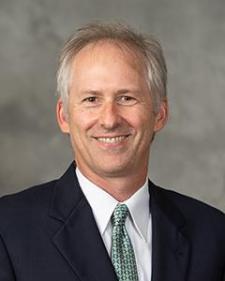Stop calling them ‘elderly’: Faculty Q&A with Assistant Professor Geoffrey Hoffman
 Assistant Professor Geoffrey Hoffman, Ph.D., MPH, studies older adult care and health policies that affect older adults. The mortality rate for COVID-19 increases for older adults, yet we’ve seen anecdotal evidence and media reports of older adults not self-isolating and millennials flouting warnings against gathering in groups. Hoffman discusses stigma and isolation among older adults, and how to talk to your older parents and friends about staying safe in coronavirus.
Assistant Professor Geoffrey Hoffman, Ph.D., MPH, studies older adult care and health policies that affect older adults. The mortality rate for COVID-19 increases for older adults, yet we’ve seen anecdotal evidence and media reports of older adults not self-isolating and millennials flouting warnings against gathering in groups. Hoffman discusses stigma and isolation among older adults, and how to talk to your older parents and friends about staying safe in coronavirus.
Why do you think some older adults don’t heed warnings to self-isolate?
First, we don’t have population data telling us that older adults are going out more than others. That said, I, like everyone else, have anecdotal observations from my own family with some of those same concerns, and I’ve seen the media reports. My caution would be to be wary of that anecdotal information. Ingrained stereotypes often can influence our perceptions, letting us possibly overstate the problem. For instance, negative views about aging, including stereotyping older adults as incapable of making decisions or taking care of themselves, may let us more easily perceive that they aren’t doing so. It’s fairly easy to stereotype. For instance, the word “elderly” has a negative connotation. Older adult is a less stigmatizing choice. That said, stereotypes embedded in language and thinking can lead to stigma, and I think stigma might explain some of these observed behaviors of going out when we think older adults should self-isolate.





